The first time I touched soil, I mean really deliberately consciously worked in it, was at Journey’s End Farm in Newfoundland, Pa. It was the place where I did lots of things for the first time: where I learned to build and cook over campfires, learned to identify animals and plants in the woods, learned about community and finding the good in each person. It is where, by the time I was 22, I had spent half the summers of my life.
It’s an unexpected question. Mom asks me and my younger brother if we want to spend a day at a Quaker camp in Pennsylvania. I’m seven; “Quaker” and “camp” have no meaning to me. Mom adds that it’s on a farm. There will be animals. We’re in. When we return that evening, she asks if we’d like to attend next summer as campers. That possibility hadn’t occurred to me while we were there, but I’m instantly certain that I do. Her next question is for how many weeks? We can go for as few as one, or as many as eight. Six weeks, I state definitively. After our first season at Journey’s End, we spend every summer of our childhood there, and from the moment we’re home, we’re can’t-waiting for camp again.
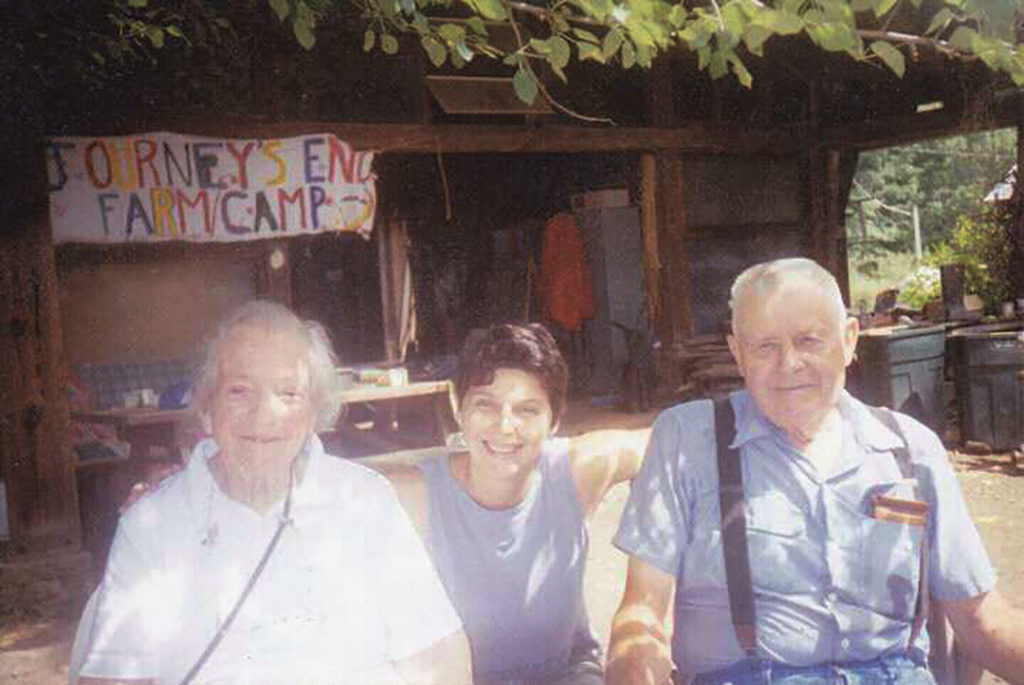
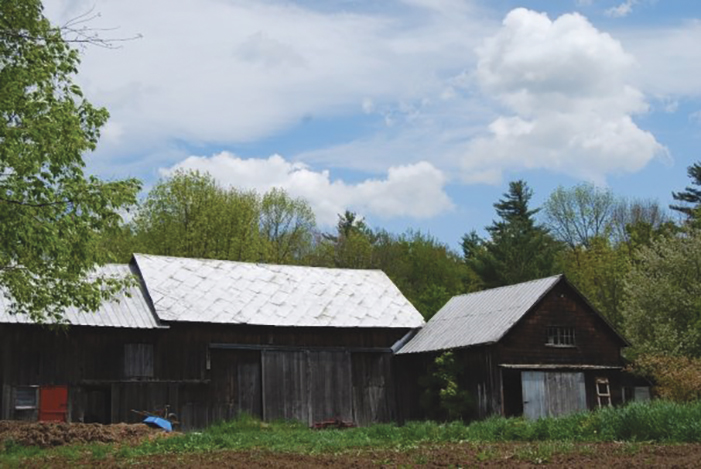
Left: Marie Curtis, the author, Ralph Curtis in 2007. Photo by Ellen Bindman-Hicks. Right: The barn in early spring. Photo by the author
At Journey’s End Farm Camp, a working farm—organic before organic was a thing—20 kids mostly from the city or suburbs got to experience farm life, the outdoors, and contemplative quiet. Marie and Ralph Curtis were the second generation of directors. In 1939, just before the Second World War, Marie’s parents, Edith and Leon Allen, founded Journey’s End dedicated to promoting international understanding by having campers of a variety of nationalities (their first two campers were Jewish refugees from Europe), and also to teaching peaceful conflict resolution and living together in caring community.
Days at Journey’s End were filled with song, adventures, farm work, and quiet morning meetings. As a young child I sat through the periods of silence with difficulty, but by age 12, my last summer as a camper, I appreciated the stillness. When I returned as a counselor at 15, I savored those meditative gatherings.
It is not an overstatement to say that who I became as an adult is, in many essential ways, because of Journey’s End. As a kid, having the freedom to explore within the safety of camp’s boundaries—to climb trees, hike in creeks, build lean-tos, plant gardens, watch cows birthing, play running games and yell as loudly as I wanted, to sleep out under the stars, swim in icy spring-fed ponds, and when too cold to swim any more, pick wild blueberries that turned my lips purple—so many experiences of living simply and in harmony with the natural world and within community, permeated my sense of who I am and who I wanted to be.
By the time I returned as a young counselor, I had decided to become a teacher. At an age when many teens are still campers elsewhere, being cared for, entertained, and instructed by adults, we counselors at Journey’s End had responsibility for kids only a few years younger than ourselves. I soon learned how to be decisive, a good listener, how to keep kids interested and engaged, how to look out for their safety and needs.
At one staff meeting, after counselors had aired frustrations about a particularly challenging camper, Ralph posed the question: What is good about this child? In his succinct, soft-spoken way, Ralph rocked my world with the assumption of goodness in all beings—and the expectation that we look for it.
Ralph and Marie’s sons, Carl and Tim, took over as the third generation of directors in the late 1980s. I returned to Journey’s End the summer I was 26, having been a classroom teacher for four years, this time as Tim’s informal assistant director. That was my last summer on staff. After that, I pilgrimaged there almost every summer.
It always feels like coming home. When I leave the interstate and turn onto the narrow two-lane Pocono road ribboning through walls of hemlock and maple, when I crest the hill with the faded Well-Drilling sign, pass the stone wall beside the Upper Pasture, and spy the farmhouse roof below, a familiar drumming begins in my chest; my stomach leaps like when you hit a bump on a rollercoaster, and I become a kid all over again.
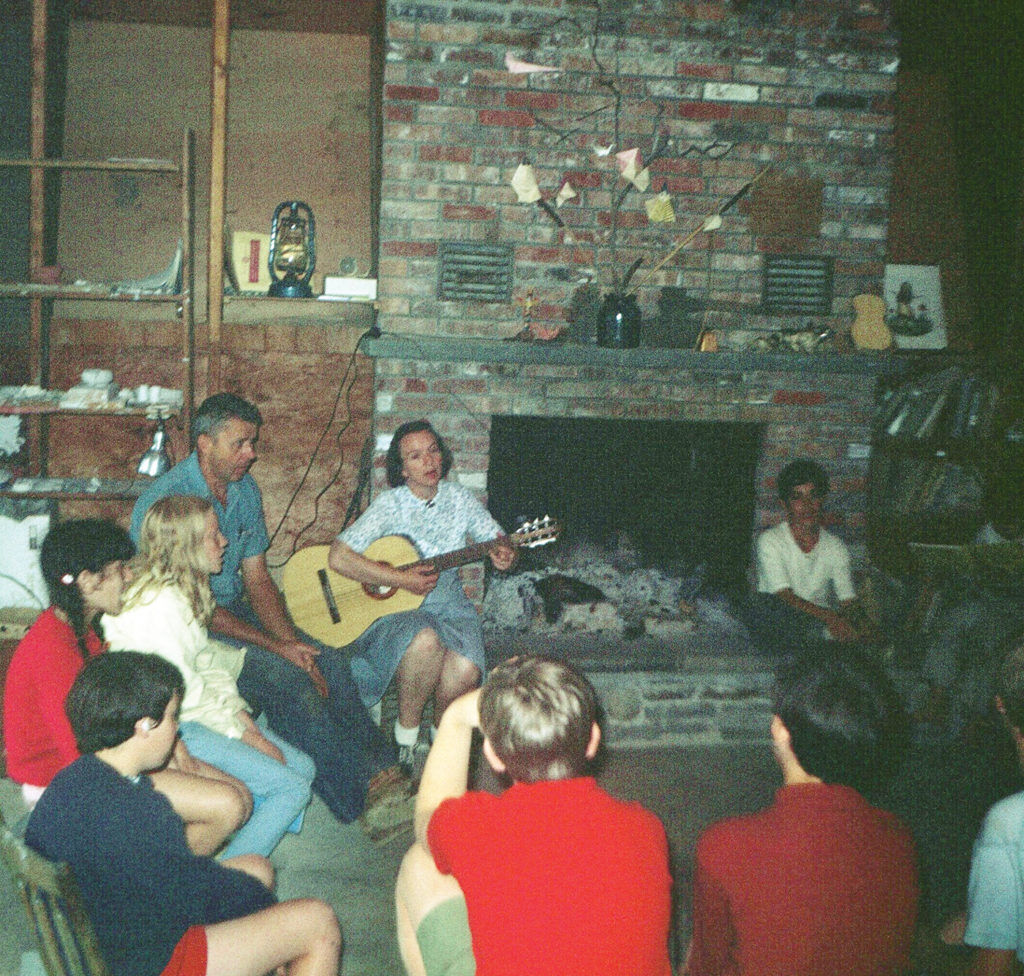
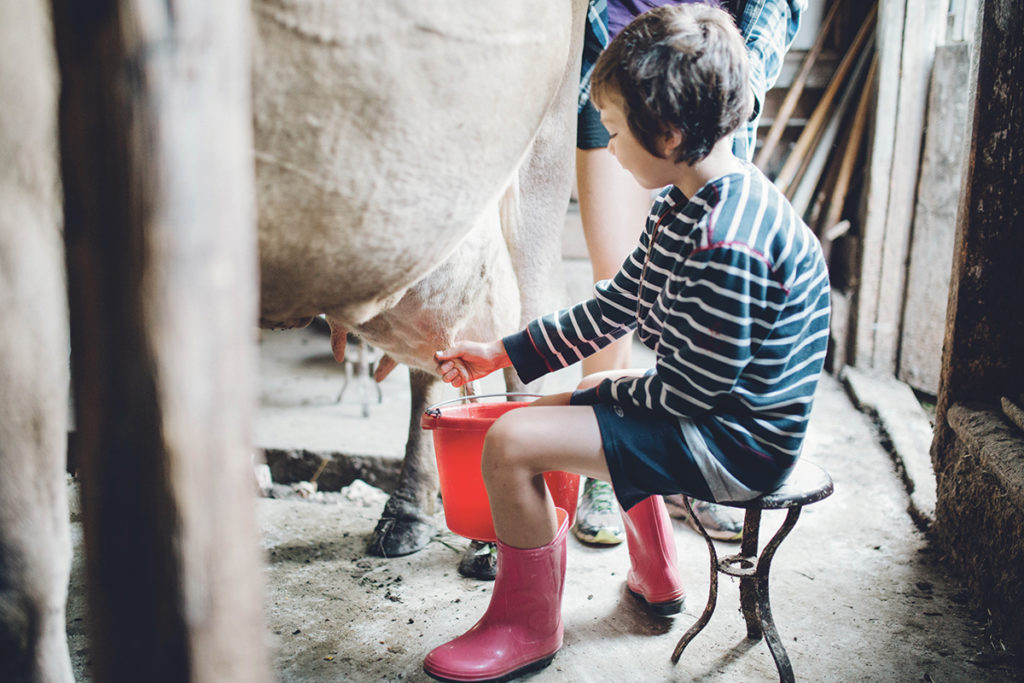
Left: Assembly in the activity building (Marie playing guitar, Ralph beside her), circa 1969. Photo courtesy of Journey’s End Farm. Right: A Journey’s End camper milking a cow in 2015. Photo by Lisa Denardo Photography.
I wanted my daughter to have all of that. Ellen’s first trip to camp was at the age of nine months. Throughout her early childhood, we would spend a day or two there each summer. She was determined to attend on her own as soon as she was old enough. So, at the tender age of seven, Ellen became a camper.
It was the first time we had been separated for more than overnight, and I felt lost. The only consolation was knowing that she was getting to experience all the wonder of my childhood. After an excruciating week of no contact, I received a rare phone call from Journey’s End. My delight at hearing Ellen’s voice was quickly dampened: Ellen was so homesick they had finally allowed her to call.
On the other end of the phone, she cried and cried as she told me how much she missed me. I listened and listened. Suddenly Ellen’s voice brightened: “Mom! Guess what! I made a pot on the potter’s wheel! And my chore is feeding Blackberry the calf!” Her tears were gone, and she was off, describing all the familiar joys of Journey’s End.
When I picked her up at the end of the session, Ellen announced, “I’m going to wait to come back until I’m ten.” She did, and had three happy summers there. We visited camp several times during her teens. As we drove away the last time, Ellen mused, “I want to be a counselor someday, but not until I’m mature enough to put the kids’ needs ahead of my own.”
Before she could do that, days after her high school graduation, Ellen’s life ended in a crash on a rain-glazed road. The next time I return to Journey’s End alone, with only her ashes.


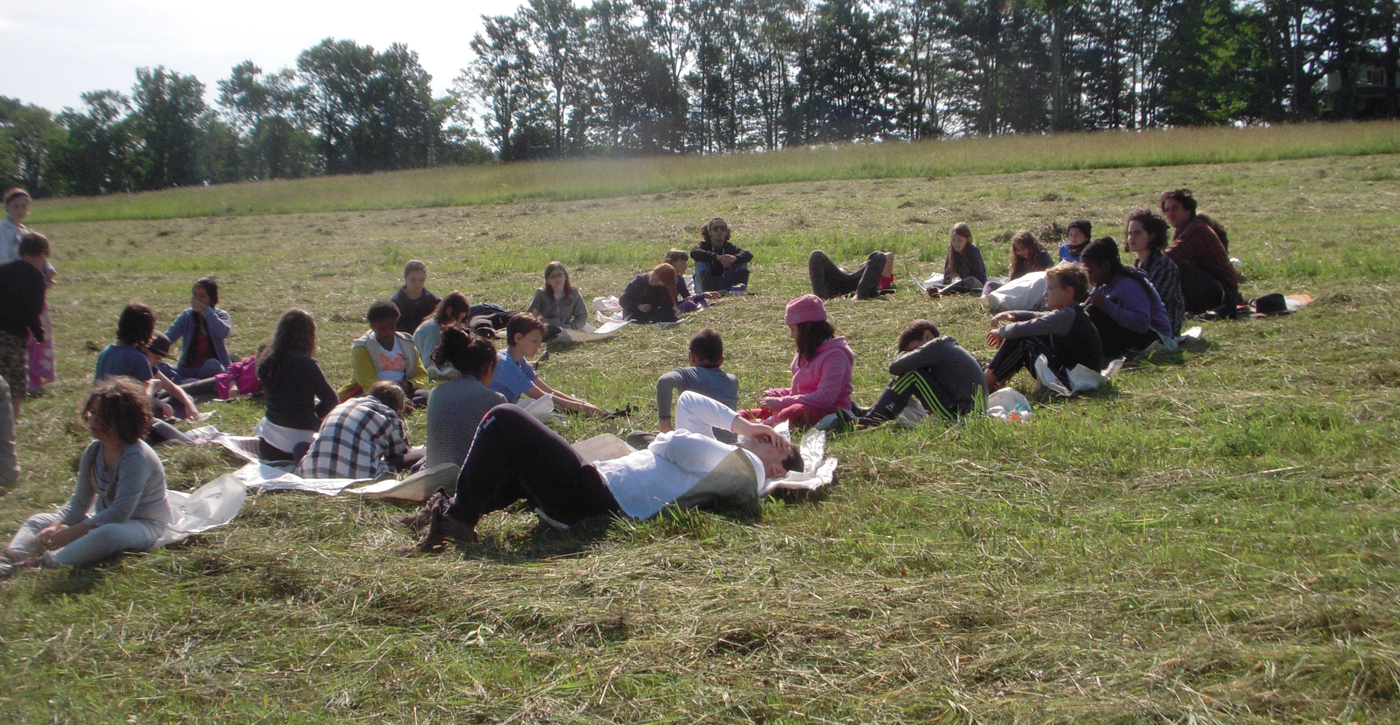

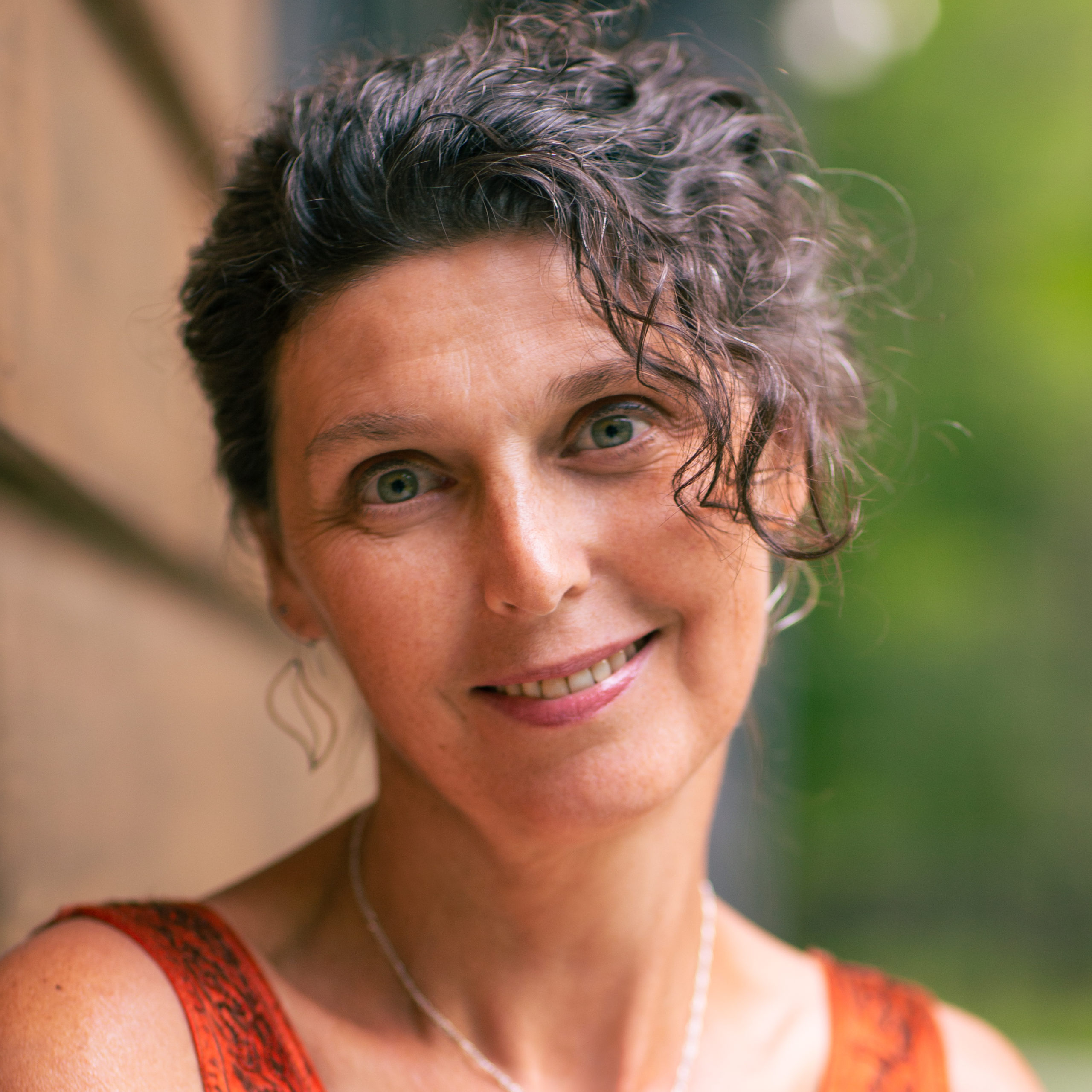

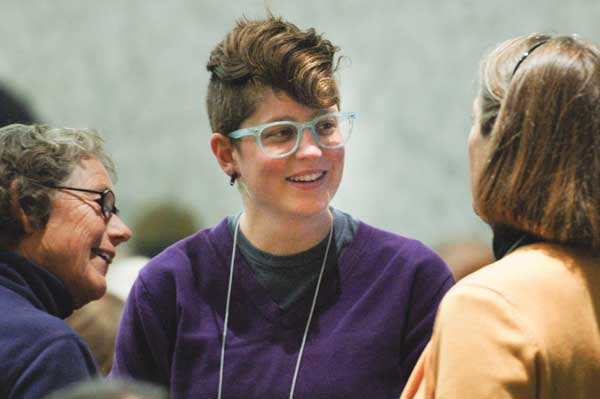
Naomi , great article!
I remember a Keltha Macauley that was my age, a great friend at camp, as well as your brother Dave.
To me the late 60s in Journey’s End were about the best